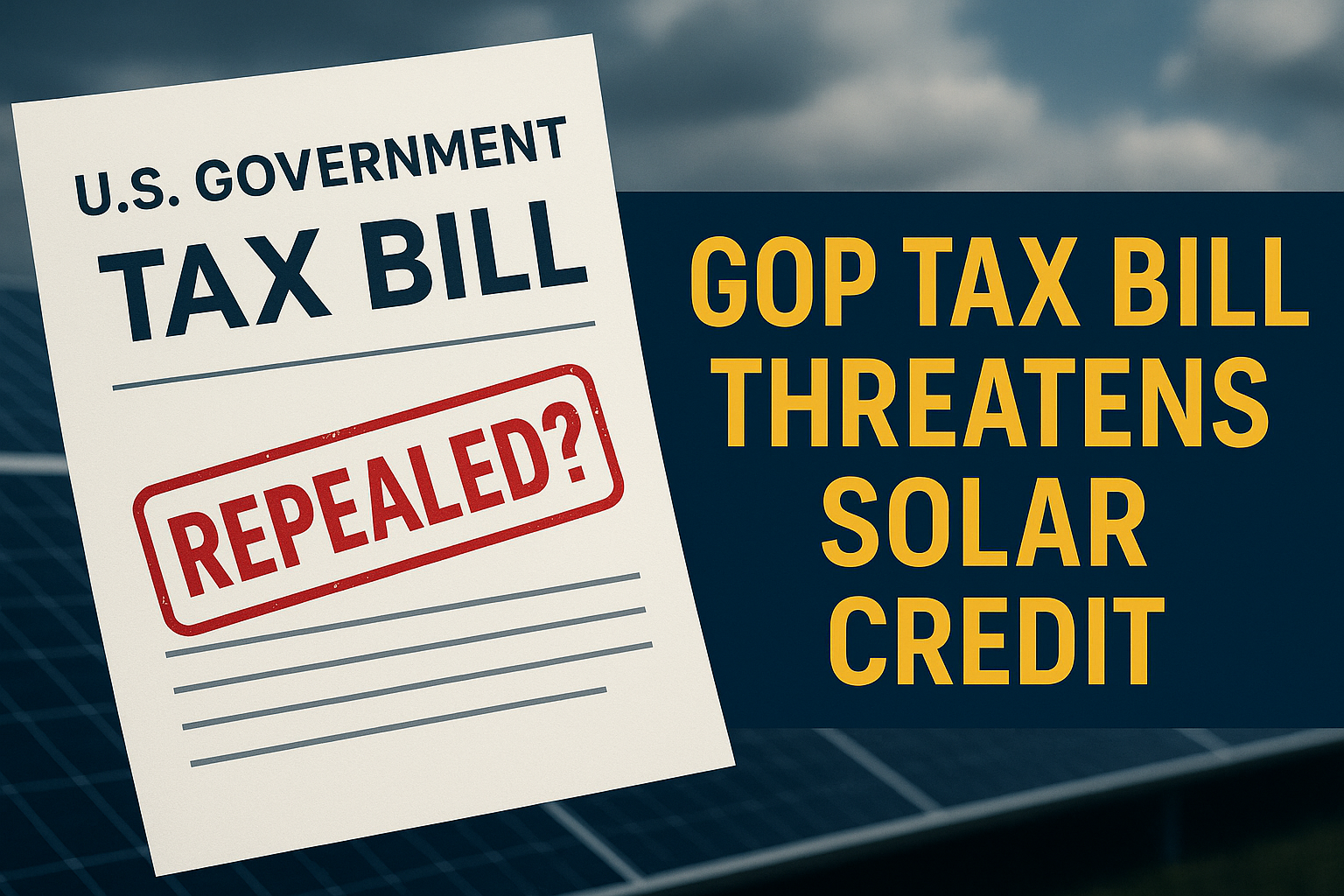The 30% federal solar tax credit, a key driver of residential solar growth in the United States, is now under threat. A new tax and spending bill proposed by House Republicans aims to repeal the residential clean energy credit by the end of this year. This move could significantly affect homeowners, the solar workforce, and national clean energy goals.
The credit, which was extended under the Inflation Reduction Act of 2022, currently allows homeowners to deduct 30% of the cost of installing solar energy systems from their federal taxes. If repealed, the financial feasibility of solar energy for many families could diminish.
Key Implications of the Proposed Repeal
1. Increased Costs for Homeowners
Without the 30% tax credit, residential solar systems would become significantly more expensive. The removal of this incentive could discourage many homeowners from making the switch to solar, especially middle-income families looking to reduce utility bills and invest in sustainable energy.
2. Job Losses Across the Solar Sector
Industry leaders are warning of major economic impacts. Will Etheridge, CEO of North Carolina-based Southern Energy Management, stated that his company may be forced to lay off up to 50% of its workforce by early 2026 if the credit is repealed.
Such job losses could ripple across the country, as the residential solar industry supports hundreds of thousands of American jobs.
3. Slowed Clean Energy Transition
The solar tax credit has played a critical role in supporting the growth of clean energy and reducing carbon emissions. Its repeal could delay progress toward both state and federal climate goals and hinder the transition to a greener energy infrastructure.
Political Background and Status
The Republican-backed legislation is part of a broader initiative to scale back federal spending, particularly provisions included in the Inflation Reduction Act. Critics argue that eliminating clean energy incentives could undercut the country’s efforts to compete globally in renewable energy innovation.
As of now, the bill has not been passed into law. If approved, the federal solar tax credit would be terminated by December 31, 2025.
What Homeowners Should Do Right Now
If you are planning to install a residential solar system, the best time to act is now. Projects completed before the repeal are expected to remain eligible for the tax credit.
Understanding how changing legislation can affect your solar investment is crucial. That’s where Solar Law Firm comes in.
How Solar Law Firm Can Assist You
We provide comprehensive legal services for homeowners, solar developers, and investors across the United States:
- Legal review of solar purchase or lease agreements
- Guidance on eligibility for federal and state solar incentives
- Contract enforcement and dispute resolution
- Legal support for ongoing and delayed installations
Don’t Wait—Secure Your Incentives Before They’re Gone
If the proposed bill passes, the clock is ticking. Homeowners who delay may lose access to one of the most valuable financial incentives in clean energy.
At Solar Law Firm, our experienced attorneys are here to help you navigate your solar contracts, protect your rights, and maximize your incentives while they’re still available.


